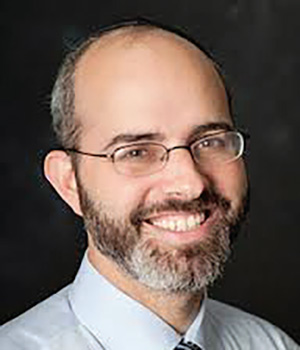
May these words of Torah serve as a merit le’iluy nishmat Menachem Mendel ben Harav Yoel David Balk, a”h.
This week we learned Shavuot 27. These are some highlights.
Shavuot 27: He swore not to have a band at his wedding. Did the oath take effect?
Our Mishnah contains the law that a person’s oath cannot take effect on top of the oaths of the Torah. If a man swears to put on tefillin and he does not put on tefillin he will not violate the sin of violating an oath. We all swore at Sinai to keep the Torah. Sinai created a binding commitment to observe the Torah’s mandates. The oath he made never took effect, for an oath cannot be added to a pre-existing commitment. If a person swears not to put on tefillin and he puts on tefillin he would not have the sin of violating an oath. Since we have already committed to observe the Torah, we cannot create an oath obligation to violate any mitzvah in the Torah.
A man had trouble with his ears. Loud noises bothered him greatly. He was at a wedding and the band was very loud. It hurt him. He made an oath, “I swear by Hashem’s name that when I get married I will not have a band at the wedding.” A few years later he met his better half and they got engaged. He brought his problem to Rav Zilberstein. Was he bound by his oath? Was he not allowed to have a band at his wedding? Is there a mitzvah to have music and a band at a wedding? Perhaps if there is a mitzvah to have a band his oath was an attempt to go against the Torah. Ein nishba’in levatel et hamitzvah, one cannot swear to annul a mitzvah. Did his oath never take effect?
The Maharil (Minhagim Hilchos Eiruvei Chatzeirot ot 7) relates that in Germany it once happened that the wife of a local ruler died and her bereaved husband legislated that no musical instrument could be played in his state for the entire year of mourning. A Jewish couple got engaged. They brought their situation to the attention of the Mahari Segal. They asked him if they should get married without any musical instruments. The rabbi ruled that they were not to marry without music. The main joy for the bride and groom is the music played by the band. He told them that if in their locale it was impossible to play music they should go to another country to marry. They listened to the advice. They left their city of Eifinshtein and married in Mainz where they were allowed to have musical instruments at the wedding. It seems from this story that it is a mitzvah to have musical instruments and a band at a wedding.
Rav Zilberstein adds that music at a wedding is a Jewish law that we should give our lives for under unique circumstances. The Gemara in Sanhedrin (74b) discusses a time of religious persecution, sha’at hashmad. If the government is legislating discriminatory laws to try to get us to violate our faith we must oppose their rulings. We must give our lives for every law. If they seek to force us to change our shoelaces, we must give up our lives to maintain our unique clothes. If unique clothes are a Jewish practice that deserves dedication, the same would be true about music at a wedding. If a government legislated against music at Jewish weddings to try to push us from our faith, we should risk our lives to keep playing the music, just as we would risk our lives to maintain our unique shoelaces.
Despite these sources, in regards to our case, Rav Zilberstein rules that the oath did take effect. Ran (Shavuot 23b) rules that an oath can take effect atop a pre-existing Torah law—if that Torah law is not an explicit verse in the Torah text. Beit Yosef (Yoreh Dei’ah Siman 239) quotes this opinion of the Ran. The Torah never explicitly states that musical instruments must be played at a wedding. An oath prohibiting such instruments is not a direct violation of a Torah text. It takes effect. The young man, in our scenario, would have to get a hatarat nedarim to have a band at his wedding. (Chashukei Chemed)
By Rabbi Zev Reichman
Rabbi Zev Reichman teaches Daf Yomi in his shul, East Hill Synagogue.










